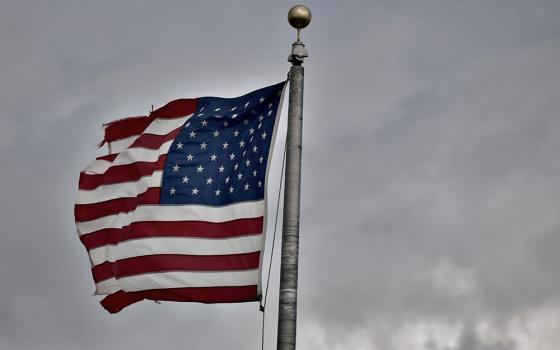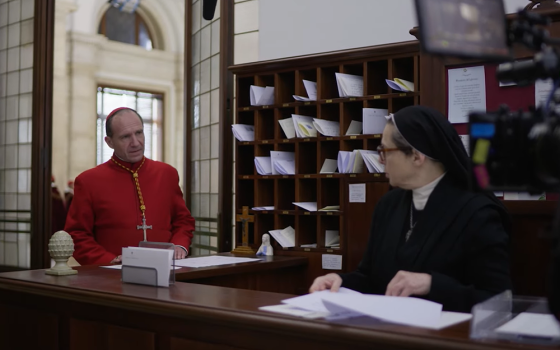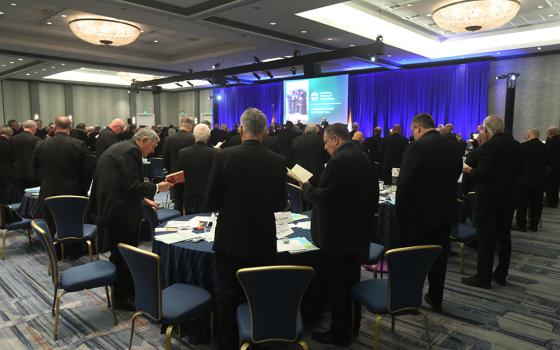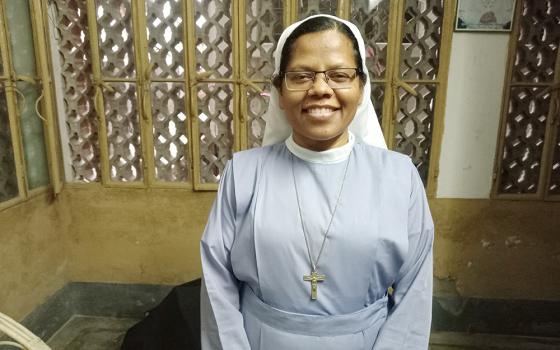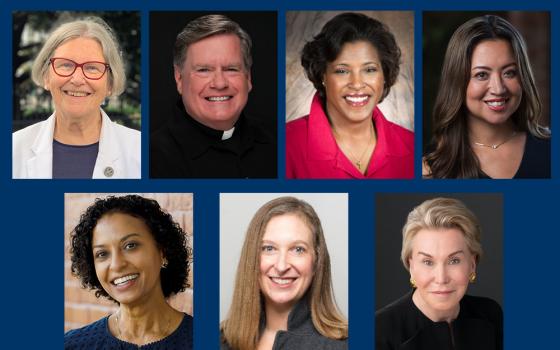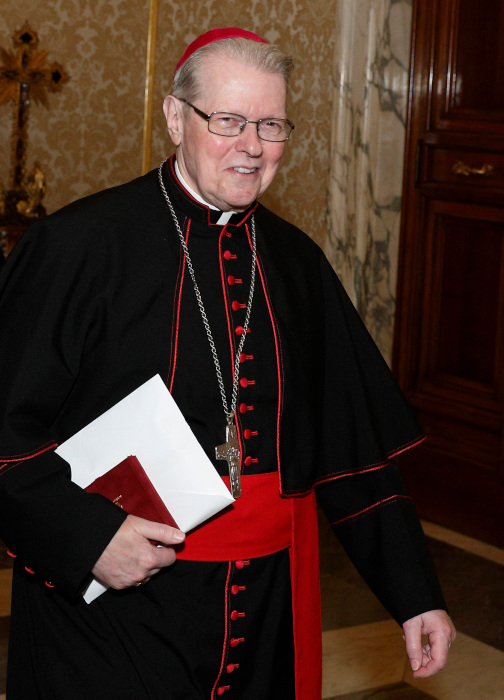
Bishop Edward B. Scharfenberger of Albany, N.Y., who is apostolic administrator of the Diocese of Buffalo, is pictured at the Vatican Nov. 15, 2019. Scharfenberger in a statement issued March 1, 2020, has answered criticisms of him for allowing certain Buffalo, N.Y., priests credibly accused of abuse to participate in a private Mass for priests. (CNS/Paul Haring)
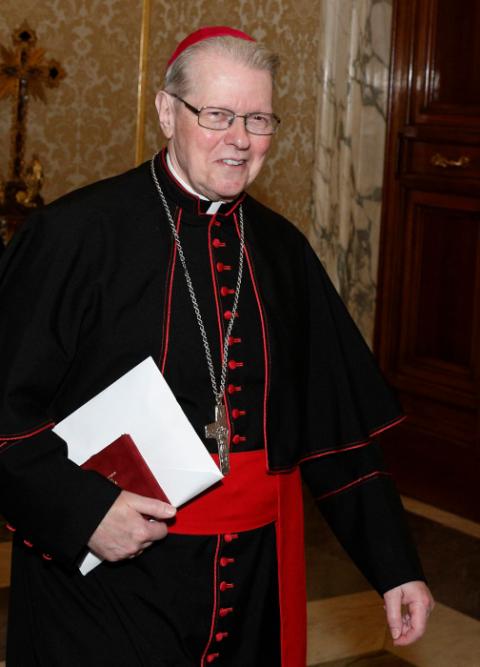
Bishop Edward B. Scharfenberger of Albany, N.Y., who is apostolic administrator of the Diocese of Buffalo, is pictured at the Vatican Nov. 15, 2019. Scharfenberger in a statement issued March 1, 2020, has answered criticisms of him for allowing certain Buffalo, N.Y., priests credibly accused of abuse to participate in a private Mass for priests. (CNS/Paul Haring)
The bishop serving as apostolic administrator of the Diocese of Buffalo said he regretted the "pain and further disillusionment" of clergy sexual abuse survivors caused by the participation of priests credibly accused of abuse in a private Lenten Mass at which he presided.
Bishop Edward B. Scharfenberger of Albany, New York, said March 1 in a statement that the Mass at the start of Lent for all priests of the diocese emphasized "the need to atone for and work toward the healing of all who have been harmed by the scourge of sexual abuse by members of the Catholic clergy."
His statement came in response to angry reaction to the Mass by Robert Hoatson, co-founder of Road to Recovery, an sexual abuse victims' advocacy group.
Hoatson charged March 1 in front of diocesan headquarters that Scharfenberger "disrespected" and retraumatized sex abuse survivors by having the accused priests at the Mass. Hoatson called on Scharfenberger to resign.
The bishop explained afterward that the Mass for priests was private and even though the accused priests are not in good standing with the diocese, they are allowed under canon law to celebrate Mass privately.
The accused priests are awaiting a decision on their cases at the Vatican. If the Vatican decides to laicize them, the bishop said, the men would no longer be able to celebrate Mass.
"In no way should this gathering be regarded as a restoration of the faculties of those suspended priests to celebrate the sacraments publicly," the statement said. "Nor, should it in any way be interpreted as disregarding the grave emotional, physical and spiritual harm they inflicted on innocent persons whose allegations have been determined to be credible."
The bishop noted that the sacraments "are not a reward for good behavior, but are intended to convey the mercy and grace of God for all who seek forgiveness and the assurance that our brokenness — our grave moral and spiritual failings — do not alone define us as His daughters and sons."
Scharfenberger said he welcomed the opportunity to meet with "those who have every right to express their views — however critical of me personally — with the hope that we can find a constructive path forward in our constant effort to convey true repentance and bring about lasting reform and renewal" of the Catholic Church in Buffalo.
The controversy followed a difficult week in the Buffalo Diocese as its lawyers Feb. 28 filed for Chapter 11 bankruptcy protection. The action in U.S. Bankruptcy Court for the Western District of New York came as the diocese faces about 260 lawsuits that filed under New York's Child Victims Act, which suspended the statute of limitations for abuse claims for one year beginning last August.
Advertisement
